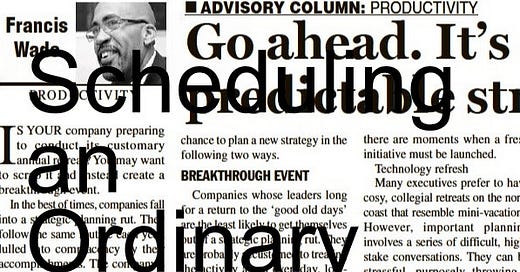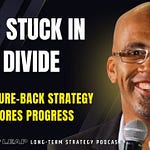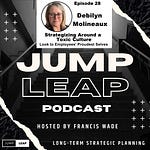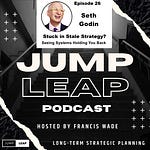Is your company preparing to conduct its customary annual retreat? You may want to scrap it and instead create a breakthrough event.
In the best of times, companies fall into a strategic planning rut. They follow the same routine each year, lulled into complacency by their accomplishments. The company’s leaders go through the motions, staying well within their comfort zones. Maybe this approach has worked for your company until now.
Transcript / Original Article
Scheduling an Ordinary Strategic Planning Retreat? Cancel It.
Is your company preparing to conduct it’s customary annual retreat? You may want to scrap it and instead create a breakthrough event.
In the best of times, companies fall into a strategic planning rut. They follow the same routine each year, lulled into complacency by their accomplishments. The company’s leaders go through the motions, staying well within their comfort zones. Maybe this approach has worked for your company until now.
Consider the following: what if your pre-pandemic success occurred despite your lack of strategic planning? In other words, there could be other reasons your organization was successful. Perhaps the founders made smart choices, you exist as a monopoly or your competition is incompetent.
If you are “winning” over your competitors, there could still be a problem. Your entire industry might have lost its way and be under an invisible threat. Therefore, you could be renting video-tapes or making buggy-whips when the world is about to turn away from your offerings.
A very different approach to your strategic planning would be to start with the disruptions that COVID-19 has wrought. While it’s easy to fixate on the enormous obstacles on the road back to business as usual, here’s a thought experiment.
What if the pandemic were a room you have always lived in, with several doors? Suddenly, a number of them have opened while others have slammed shut. A few have remained the same.
Most companies are likely to treat this once-in-a-lifetime disruption as an obstacle to overcome. But what if you were to see it as a collection of doors: opportunities and dead-ends? If you were to do so, you may seize to chance to plan a new strategy in the following two ways.
1. A breakthrough event
Companies whose leaders long for a return to the “good old days” are the least likely to get themselves out of a strategic planning rut. They are probably accustomed to treating the activity as an everyday, low-stakes ritual. If this strikes a chord, use the opportunity to declare your next retreat, the one that creates proactive, game-changing plans.
While this may not be possible to achieve every year, there should be a clear distinction between major and minor opportunities. When there’s a big disruption, as there is now, go for a breakthrough retreat. If nothing much has changed, cancel the event. Pull out last year’s plan and perform some minor adjustments, showing your executives that there is a difference. But above all, make the decision early.
In the case of this particular pandemic, you probably may not have a choice. When multiple disruptions (e.g. health and economic) coincide, you must act differently. By design, move your leaders into a fresh zone of discomfort by putting them together in breakthrough planning sessions. Carefully arrange the activity so that a business-as-usual strategy becomes the most unlikely result.
This teaches your executives that all plans are not equal, and there are moments when a fresh initiative must be launched.
2. A technology refresh
Many executives prefer to have cozy, collegial retreats on the North Coast that resemble mini-vacations. However, important planning involves a series of difficult, high-stake conversations. They can be stressful, purposely throwing a spotlight on simmering disagreements.
When companies give in to the temptation to keep the peace, important decisions are just not made.
For example, many local firms still need to be convinced that the IT department should play a vital role in strategic planning. But this is understandable. Their ordinary IT employees may be pre-occupied with issues such as laptop security. Big challenges like digital transformation remain out of reach. Consequently, it’s often difficult to incorporate IT, and doing so makes leaders uncomfortable.
However, today most agree that breakthrough strategic planning must include a view of technology. Unfortunately, it’s awkward to have digital transformation discussions at this level. Board and executive members are usually uninformed. But these vital discussions cannot be avoided.
In fact, the future will include more explorations of hard-to-understand technologies. Not less. And designing retreats to emphasize this reality has become mandatory. As such, your company must use long-term horizons of 10-30 years to take into account the full effect of new innovations.
This requirement frustrates many executives who find it painful to think in such terms. But planning for the distant future is essential in smashing the status quo with immediate actions.
If your organization doesn’t intend to produce a breakthrough plan at its next retreat, cancel it and modify your old one. Save your energy for when it’s really needed: a game-changing meeting of the minds that rethinks your company and industry. This activity could be the one that takes you into a new, unprecedented future.















Share this post